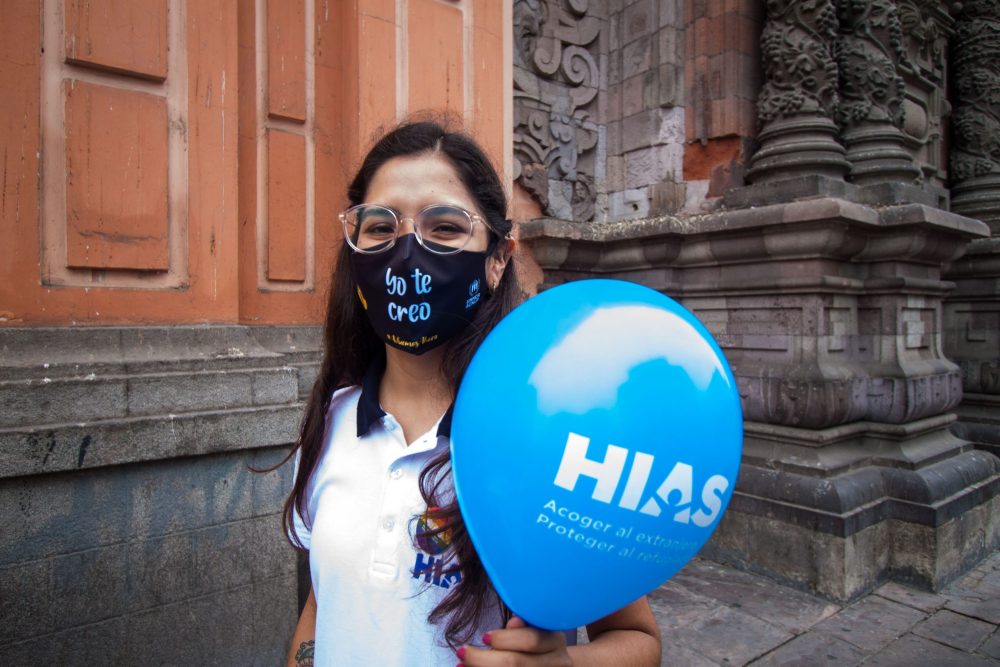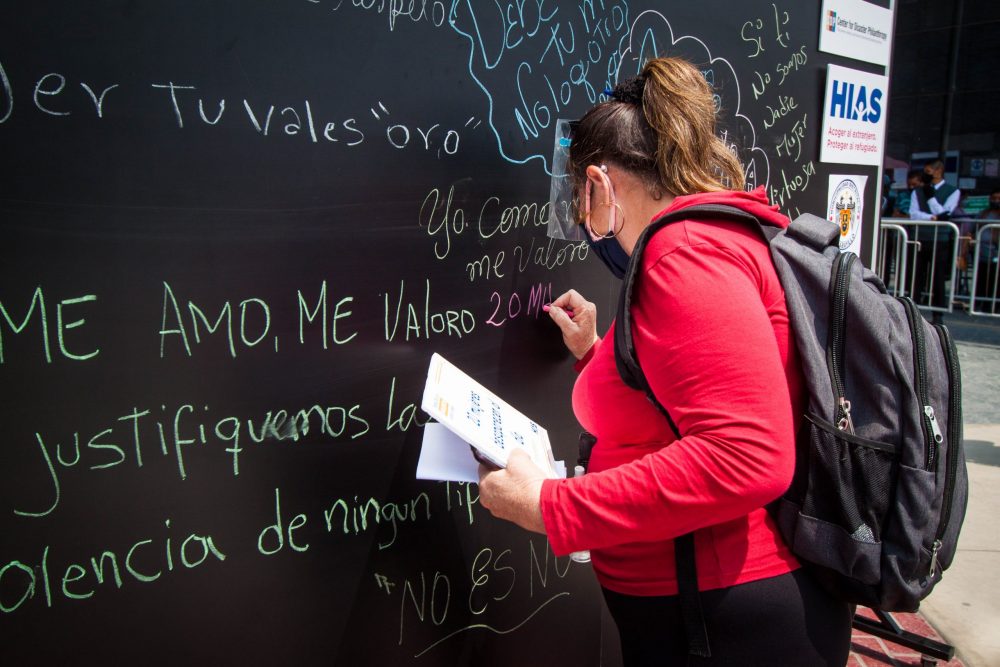Disaster Philanthropy Playbook

COVID-19 – HIAS
HIAS received a $200,000 grant from the Center for Disaster Philanthropy (CDP) to mitigate COVID-19 related risks among women, girls, LGBTQ and other marginalized groups to ensure gender-based violence (GBV) survivors can access response services. The grant will also help service providers’ preparedness to support survivors in future waves of the pandemic.
HIAS began in 1881 as the Hebrew Immigrant Aid Society to assist Jews fleeing pogroms in Russia and Eastern Europe find refuge in the U.S. The organization describes its history in this way, “Because we have helped more than 4.5 million people escape persecution, HIAS is uniquely qualified to address the modern refugee situation, which has mushroomed into a global humanitarian crisis. We understand better than anyone that hatred, bigotry, and xenophobia must be expressly prohibited in domestic and international law and that the right of persecuted people to seek and enjoy refugee status must be maintained. And because the right to refuge is a universal human right, HIAS is now dedicated to providing welcome, safety, and freedom to refugees of all faiths and ethnicities from all over the world.”
HIAS’ work has since expanded to people from other countries, religions and backgrounds. Jessica Reese, HIAS’ Associate Vice President, Strategy and Development, said, “We began to take our resettlement and integration expertise that we had with the Jewish population and apply it to other populations. Today, the majority of the people we serve are not Jewish. In the early 2000s, we expanded to Kenya and Ecuador as our first international offices. We saw the need to serve people as they navigated the resettlement process and build safe communities for refugees in the countries of first refuge where the majority now remain indefinitely.”
HIAS now supports refugees and asylum seekers in 16 countries globally and across 20 American cities, including along the southern U.S. border. They are one of only a handful of international organizations working in Venezuela. Their work includes international and domestic policy advocacy, humanitarian assistance, and domestic legal support and resettlement. HIAS’ international programs are based in four areas of work: legal assistance, livelihoods, psychosocial support and prevention and response to gender-based violence (GBV).
Heid Lehmann works for HIAS as the Senior Director, Technical Excellence. She said, “We are always aware of how underlying gender inequality is going to be impacted by a crisis. In the situation of COVID-19 we saw right away that it was exacerbating different kinds of violence, and so we focused on getting support to survivors. Because of our multidisciplinary programming, we are able to meet a variety of survivor needs.”

CDP’s grant provided support for HIAS’ work in Costa Rica and Peru. In both countries, many of the women that HIAS serves work in the informal economy. Women and girls suffered more than men and boys from the economic impact of the pandemic’s lockdowns. The responses in each country were shaped to meet the specific needs presented by women and girls.
In Costa Rica, HIAS noted 11 cases of femicide in 2020 and 4,302 cases entered in Domestic Violence Courts in 2020. HIAS worked hand-in-hand with domestic violence survivors to help them leave their abusive relationships. This included the provision of legal information, assistance in obtaining basic ID and overall survivor accompaniment. Lehman said, “We helped them get everything they need, walking with them every step of the way.”
In Northern Costa Rica they deployed a specialized staff member with training on GBV to get information to survivors who were coming into the country from Nicaragua as quickly as possible. Lehman said:
“We recognized how many women had experienced violence on the way to Costa Rica. Besides homes, borders are one of the most dangerous places for women and girls.”
In Peru, knowing that there was limited mobility because of lockdowns, HIAS used mobile protection units to get as close to the survivors as possible. They would go out into the communities and explain, “We can help you get from service point A to service point B,” Lehman said. “We provided a lot of help and counseling. But the reality is that a lot of survivors cannot leave. So, we provided counseling and safety planning to keep them safe, even in the homes where violence was happening. Because of CDP’s funding, alternative and safe short-term shelter became an option.”
Lehman explained that they also recognized early on the likelihood of a disproportionate impact on adolescent girls, so they established funding to run programs specifically for them. This funding enabled small peer groups among the young women where they could provide support to each other. She added, “In those groups, we would have semi-structured discussions about relationships and around risks, particularly [related] to trafficking, child early marriage and forced unions. Our goal was to try to reduce their risks of these issues. When it’s all said and done, and COVID is in the review mirror, we will be shocked by the amount of trafficking that went on. In Peru especially, our program was really part of addressing the impact this was having on adolescent girls.”
“Girls are seen as disposable and can be a source of revenue for a family.”
Both Reese and Lehman pointed out that CDP’s flexibility in allowing HIAS to identify the needs, the funding gaps and the best solutions based on the individual countries and their experience was critical to their success. And as one of the first funders to make significant grants, CDP’s support helped increase awareness of gender-based violence among other donors. Reese said, “We raised $3.4 million in direct COVID funding from individuals, private foundations etc. CDP’s name carries a lot of weight and it allowed us to not just to leverage funds, but it also encouraged donors to take the pandemic seriously.”
She added, “Between Heidi and I, we have been doing this for decades. This is a crisis like no other. We have humanitarian workers who are burned out and yet are still providing services. We have responded for months, but the acute crisis isn’t over. People who were vulnerable at the start of COVID and now even more vulnerable; the needs are just as urgent today.”